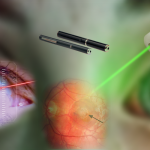A woman who spent up to 23 hours online and took 200 selfies a day has developed a rare and painful disease characterized by chest pain and swelling between the upper ribs.
Michelle Gore, a 21-year-old woman from Bracknell, Berkshire, became so addicted to gadgets that she developed Tietze disease in January last year. Gore was told by her doctor that her obsession with technology had put a strain on her rib cartilage that caused her to develop the inflammatory disorder.

The graphic designer had decided to consult a doctor after experiencing shooting pains in her chest and back every day.

“I was at breaking point so I confessed how long I’d been spending on my gadgets. She said I’d strained my costal cartilage from being in the same position for so long staring at my phone or hunching over my laptop,” she told The Daily Mail UK.

According to Gore, her addiction started when she asked for gadgets as presents every Christmas. She would receive the latest gadget every Christmas and would spend the entire holidays glued to a screen. Gore even requested for a waterproof phone so she could stay online while taking a shower.

Her addiction became so severe that when the Internet became unavailable for three days, Gore struggled to cope.

“It was my worst nightmare. Since I spent most of my time online, it suddenly felt like life had stopped,” she recounted.

Determined to win over her technology addiction, Gore sought the help of experts at the Nightingale Hospital in Marylebone, London. But the expensive fees for the treatment made Gore decide to turn to her family for support.
For adolescent psychiatrist and technology addiction specialist Dr. Richard Graham, technology addiction is difficult to treat since a patient cannot simply decide to never use technology again.
“We need technology in our lives and it brings a host of benefits. It can, however, drain us of our time as we spend more and more time online. This can become a compulsion to constantly be plugged in so that we don’t ever risk feeling that we are missing out, or stepping off a ladder. The by-product of this is that we are seeing an increasing number of young people addicted to technology,” he explained.


